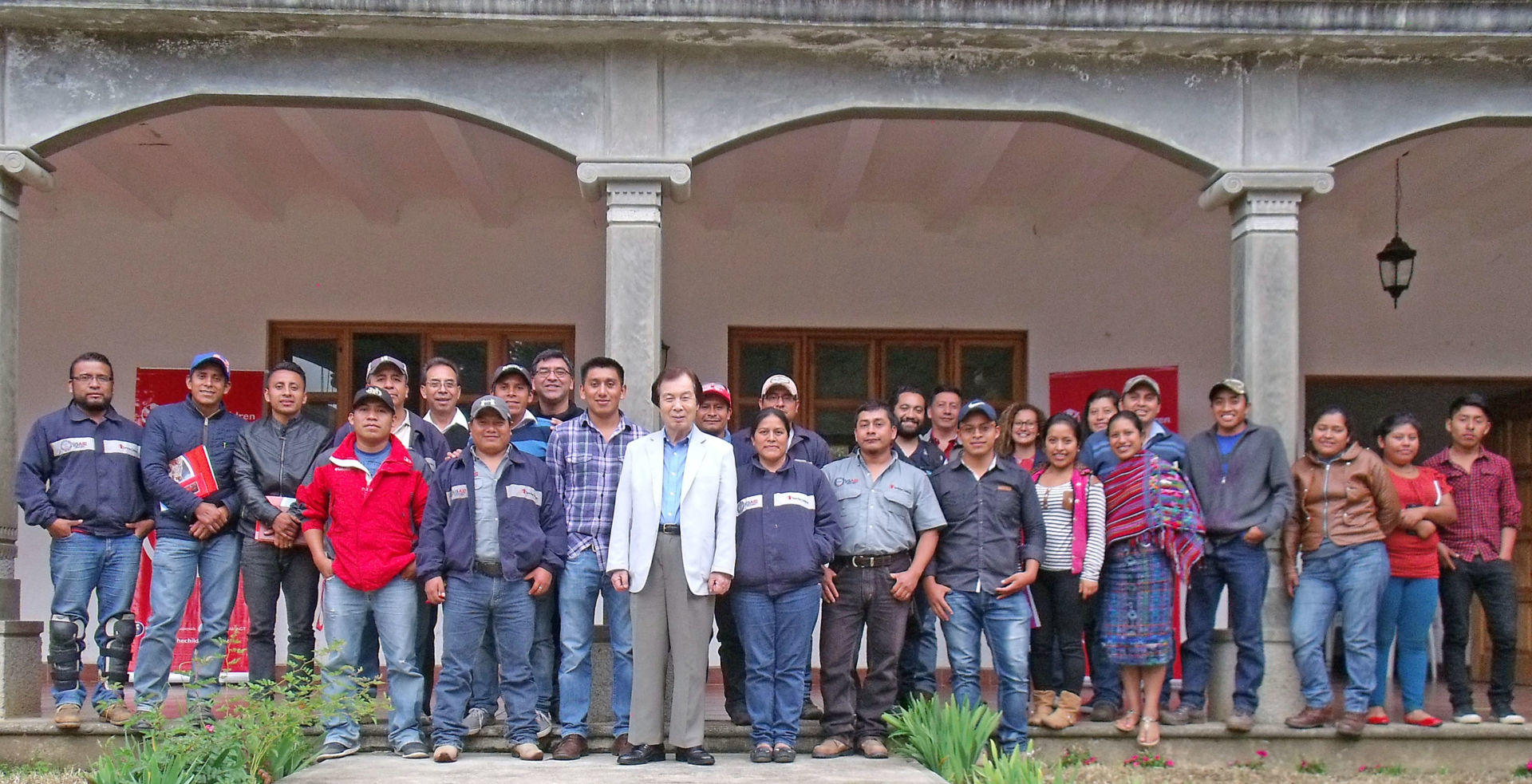“Got milk?” — A popular American advertising campaign launched in 1993 to encourage people to drink cow’s milk could easily change to, “Got goat’s milk?”
With more and more people learning about the nutritional benefits of goat’s milk over cow’s milk, Dr. Young Park, a Fort Valley State University professor of food science, was invited by the U.S. Agency for International Development’s (USAID) Farmer-to-Farmer volunteer training program to assist in Guatemala from July 23 to Aug. 6.
Park, an expert in dairy goat production and dairy technology, visited the developing country to assist in the establishment of a dairy goat industry.
USAID invited Park to educate and train the non-established grassroots dairy goat industry and the dairy goat sector in Guatemala. He also visited to educate and train the Save the Children program staff, regional technicians and university students and faculty in Guatemala.
“My volunteer work, this time, in Guatemala has been invaluable and gave a substantial impact on the establishment of a future dairy industry and economic survival of rural small livestock holders in Guatemala, in general, since there has been no real dairy goat sectors or its industry existing,” Park said.
During his two-week visit, Park spoke to more than 186 people, including farmers, health and nutrition professionals and university faculty and students about the benefits of goat’s milk and its dairy products. Additionally, he conducted hands-on training for processing goat’s milk and cheese making to local Nebaj region small goat farmers and staff at the milk processing plant located at PAISANO-CEPROCAL.
“I had to show step by step from the beginning to the end for making goat cheese,” Park said.
Because the farmers did not have an adequate processing plant or the necessary equipment, they did everything manually. In possession of cheese cultures and cheese enzymes, as well as locally procured cheesecloth, Park was able to demonstrate how to make goat cheese.
“With lack of equipment and facility, whatever they had, we used,” Park said. In the end, he said the small goat farmers, who never received training, were excited to see the outcome and appreciated his assistance.
With a relatively small number of goat farmers in Guatemala, each has approximately two to five goats for their family needs. Park indicated they have goats to maintain family food and income needs, but they do not have the advanced technology, nor the knowledge and resources to establish the goat’s milk industry. He explained that developing countries and tropical areas cannot afford to have cows due to the lack of feeds, and the weather or environment is difficult for cows to thrive.
However, goats, referred to as the “poor man’s cow,” can thrive much better in harsh environments and lack of pastures with even tree leaves. In addition, Park said more people reside in underdeveloped than developed countries. “That’s why more people drink goat’s milk than the milk of any other dairy species,” he said.
By sharing his skills and knowledge, Park was able to build a foundation in Guatemala for producing quality goat’s milk, which is essential for the establishment of its dairy goat industry.
“My volunteer work in Guatemala made a big impact on the future dairy goat industry and the wellbeing of the country,” he said.
As far as the health benefits of goat’s milk, Park said, it has better digestibility, higher short chain and medium fatty acids and mineral contents than cow’s milk, which is beneficial for children for their growth and bone mineralization. It also has therapeutic and hypoallergenic values, which can heal cow’s milk allergy and stomach ulcers.
Partners of the Americas’ USAID-funded Farmer-to-Farmer program provide technical assistance to individual farmers, farmer associations, agricultural cooperatives, education institutions and others in countries such as the Dominican Republic, Guatemala, Haiti and Nicaragua.
For more information about goat’s milk and this project, contact Park at 478-827-3089 or park@fvsu.edu.

